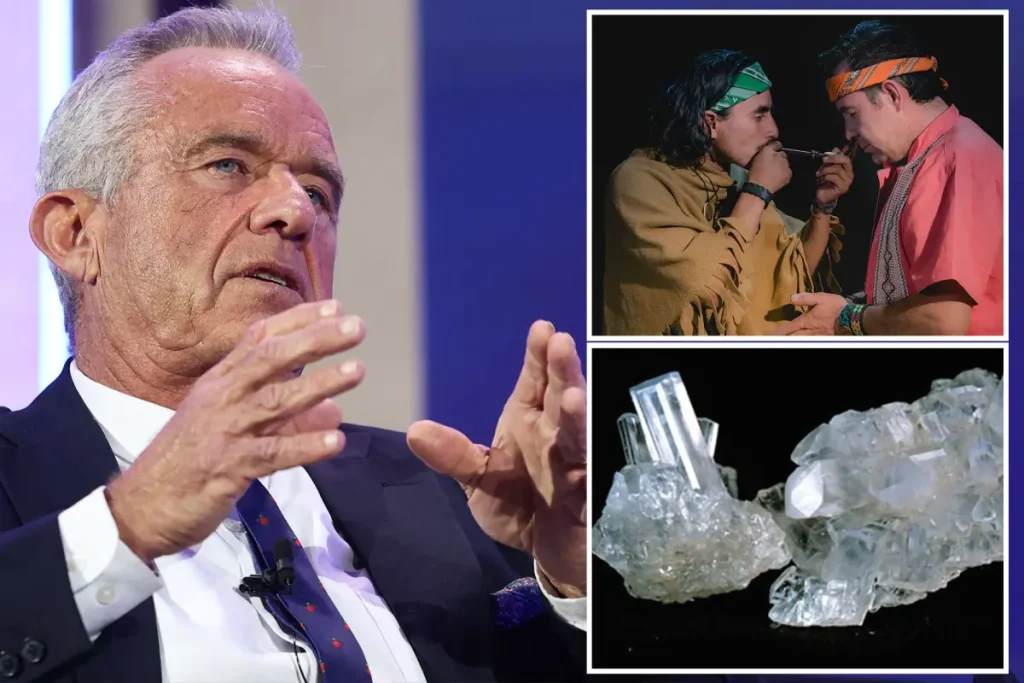The Kennedy-Nuzzi Affair: A Modern Tale of Politics, Journalism, and Human Fallibility
In late 2023, what began as a routine political interview evolved into one of the more unexpected scandals in recent political journalism. Former New York Magazine reporter Olivia Nuzzi, then 31, was assigned to profile Robert F. Kennedy Jr., the 71-year-old scion of America’s most famous political family who was mounting an independent presidential campaign. According to Nuzzi’s forthcoming memoir “American Canto,” their professional relationship quickly transformed into something much more complicated—a relationship that would ultimately upend both of their lives in profound ways. The revelations contained in her book, scheduled for release on December 2, offer a stark glimpse into the human complexities that exist behind public personas, whether those of journalists or political figures.
The memoir reportedly contains several startling claims about Kennedy, including his alleged admission to using powerful psychedelics like dimethyltryptamine (DMT), despite his well-documented decades of sobriety from alcohol and hard drugs. DMT is known for producing intense psychedelic experiences often compared to near-death states, according to scientific studies. This revelation stands in stark contrast to Kennedy’s public image as a health advocate and anti-vaccine activist who has long emphasized clean living. In one particularly candid exchange described in the book, Nuzzi claims she admitted to preferring stimulants like Adderall during a conversation with Kennedy, who had by then been appointed as President Trump’s Secretary of Health and Human Services. These intimate disclosures highlight the paradoxical nature of public figures—the gap between carefully cultivated public images and private realities.
The relationship between Nuzzi and Kennedy reportedly intensified quickly, with the memoir claiming that Kennedy professed his love for her first, called her by the intimate nickname “Livvy,” wrote her poetry, and even suggested he wanted her to have his child. These details paint a picture not just of inappropriate professional boundaries, but of genuine emotional entanglement—at least as Nuzzi experienced it. What makes this relationship particularly complicated is that it occurred while Kennedy was a presidential candidate whom Nuzzi was covering journalistically, creating an obvious conflict of interest. Additionally, Kennedy was and remains married to actress Cheryl Hines, who has reportedly stood by him throughout this scandal, while Nuzzi was engaged to fellow political reporter Ryan Lizza at the time the relationship began.
The affair became public knowledge in October 2023, triggering a cascade of professional and personal consequences. Nuzzi lost her position at New York Magazine, where she had built a reputation as a rising star in political journalism known for her incisive profiles. Her engagement to Lizza ended abruptly. When the scandal first broke, Nuzzi was quick to clarify that the relationship “was never physical” but acknowledged that she should have disclosed it to her editors immediately to prevent the appearance of a conflict of interest. “I deeply regret not doing so immediately and apologize to those I’ve disappointed, especially my colleagues at New York,” she stated at the time. This admission, while forthright, came too late to save her position or reputation in the moment.
What makes this story more than mere tabloid fodder is how it illustrates the blurring of lines between personal and professional in modern American politics and journalism. Both professions demand public trust, yet both are performed by humans with all their attendant flaws and desires. The relationship between politicians and the journalists who cover them has always been complex—relying on access, confidences, and a certain intimacy that can, in cases like this, cross boundaries. While Nuzzi has faced significant professional consequences, rebuilding her career at Vanity Fair as West Coast editor, the impact on Kennedy’s career appears to have been minimal, highlighting the often uneven repercussions when such boundaries are crossed. Kennedy has not publicly addressed the allegations in Nuzzi’s book, and when contacted by The Post through the Department of Health and Human Services, no immediate response was provided.
This story ultimately reveals something essential about power, vulnerability, and human connection in public life. Two people in positions of public trust made choices that compromised their professional integrity and personal relationships. While their actions may be judged harshly, they also reflect a fundamentally human tendency toward connection and self-deception. As Nuzzi’s memoir heads to publication, it stands as both a cautionary tale about professional boundaries and an intimate look at how quickly and completely those boundaries can dissolve when emotions become involved. What remains to be seen is whether this tell-all will provide Nuzzi the catharsis and career rehabilitation she likely seeks, or whether it will simply extend a scandal that has already extracted significant costs from all involved.


